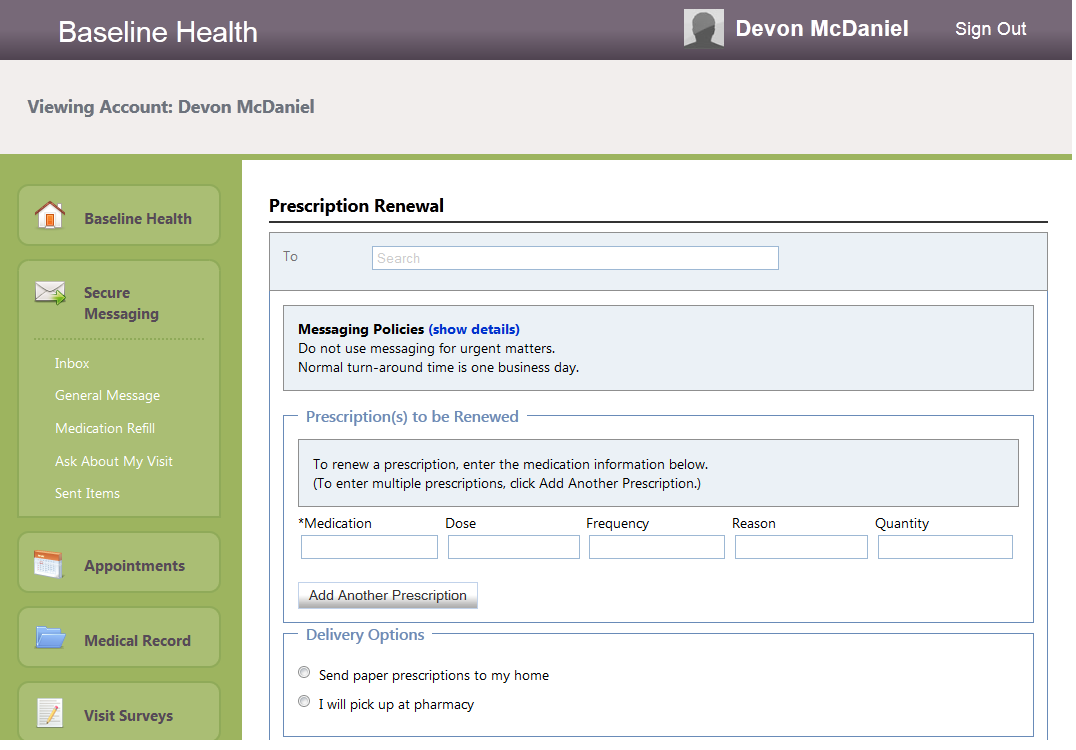What Is Cerner EMR? A Guide to the Vendor’s Solutions
For people like me who spend a lot of time thinking about medical software, it’s tough to imagine a world without Cerner’s suite of popular products. However, we realize it’s not everyone’s job to research, evaluate, and compare health IT solutions. So here, we’ll provide the skinny on the Cerner vendor.

What is Cerner?
Cerner is a U.S.-based, multinational company that offers software, services, devices, and hardware for medical practices, long-term care facilities, retail pharmacies, and laboratories.
Founded: 1979
CEO: Brent Schafer
Headquarters: Kansas City, Missouri
Customer base: Licensed to 27,000+ facilities around the world
Revenue: $5.5 billion in 2020
In this comprehensive guide, we break down everything you need to know about Cerner, including descriptions and screenshots of some of its most popular software solutions.
Check out the video below for a general Cerner overview:
Cerner products and services
Cerner is considered a big vendor in the health IT industry. It has frequently been recognized as a “Leader” in Gartner’s Magic Quadrant reports over the years, and Gartner has called it a “Megasuite Leader” currently dominating the population health management (PHM) vendor landscape (content available to Gartner clients).
That said, the company’s products aren’t exclusively geared toward hospitals and multispecialty health centers; Cerner serves small, single-doctor offices as well.
In 2018, Cerner Corp. partnered with Lumeris and invested $266 million in one of Lumeris’ population health and value-based care tools. Thanks to national legislation and changing care delivery models, the medical market is undeniably shifting toward value-based care, and Cerner’s early effort to embrace this transition is what likely caught Gartner’s attention.
As part of the investment deal, Cerner and Lumeris will partner until 2028 to pursue developments in their Maestro Advantage software, a system that will focus on provider-sponsored health plans and Medicare Advantage plans.
High-profile clients
Cerner’s clientele includes the following high-profile healthcare providers:
The Department of Defense (DoD). In 2015, Cerner’s EHR won a contract with the DoD to replace its legacy health IT system in its 55 hospitals, 350+ clinics and multiple military locations (e.g., ships and submarines). The transition is on track for full deployment in the next few years.
Ascension Health. Ascension, the largest nonprofit Catholic health system in the U.S., partnered with Cerner in 2004 to transfer all of its care facilities to a single EHR solution. Since then, the health system has seen tremendous growth and improvements in patient outcomes.
Cerner EMRs
Electronic medical records (EMR) software also known as electronic health record (EHR) software, makes it possible to automate a medical practice’s clinical operations, such as documenting diagnoses and medications. Cerner has an EMR system to fit the needs of every type of healthcare provider.
To help you differentiate between them, here’s a look at some of the most popular Cerner solutions:
Cerner PowerChart Ambulatory EHR

Ideal for: Physician practices of all sizes; it supports more than 50 medical specialties.
Noteworthy functions: E-prescribing, lab integration, data analysis, narrative reports, custom templates, chart search, Medicare eligibility verification, direct messaging, and patient portal.
Deployment options: Cloud-based or on-premise.
See what people are saying about Cerner PowerChart Ambulatory EHR.
CareTracker by Cerner
![]()
Ideal for: Assisted living facilities, long-term care centers, retirement communities, and special care units of all sizes.
Noteworthy functions: Point-of-care documentation, data analysis, clinical intelligence capabilities, and assessment alerts.
Deployment options: Cloud-based.
See what people are saying about CareTracker by Cerner.
Cerner Millennium

Ideal for: Enterprise healthcare providers serving multiple specialties, such as large hospitals or behavioral health services providers.
Noteworthy functions: Medication administration documentation, data analysis, audit reporting, and lab/drug alerts.
Deployment options: Cloud-based or on-premise.
See what people are saying about Cerner Millennium.
Cerner practice management systems
Practice management software helps care providers handle administrative and operational processes, such as appointment scheduling, billing, and financial reporting. Here are details of Cerner’s solution for managing physician practices:
Cerner Specialty Practice Management

Ideal for: Small to midsize clinician practices with 10 or fewer providers.
Noteworthy functions: Real-time insurance claims checking, data analysis, payment posting, patient scheduling, and support for ambulance billing.
Deployment options: Cloud-based or on-premise.
See what people are saying about Cerner Specialty Practice Management.
Cerner mobile apps
One of the most prominent Cerner products is PowerChart Touch, a mobile app that allows physicians and healthcare professionals to use tablets and smartphones while treating patients.
This capability is important, as mobile device integration is among medical software buyers’ top-requested functionalities, both for EMR and practice management solutions.

Cerner PowerChart Touch interface (Source)
PowerChart Touch is a cloud-based app for iPads and iPhones that allows a healthcare organization to:
Review patient charts
Use voice dictation to make notes
Document allergies, symptoms, and health histories
Draft and sign progress notes
Other Cerner services
Many medical practices are researching Cerner for services other than software. Some practices are looking to outsource collections so they can focus more on patient care and less on business operations. That’s where Cerner’s billing and coding services come in.
Cerner’s revenue cycle management (RCM) systems can take over medical billing, reimbursement, and accounting processes such as:
Denials management
Cash posting
Insurance verification
Charge processing
Claims scrubbing/processing
Submit your practice’s charges through your EMR, and Cerner’s dedicated staff will ensure you’re maximizing collections and minimizing errors.
Looking for other top medical software vendors besides Cerner? At Software Advice, you can check out pricing, reviews, and demos for over 300 different EHR systems.
We can also help you find the right software for your needs and budget in 15 min or less, for free. Schedule a call to chat with a software advisor now.
The purpose of this article is not to create an all-encompassing list of Cerner software products and services. Rather, it is to highlight some of the vendor’s most popular solutions to better guide potential software buyers. The vendor featured in this research was selected based on high search volume for keywords related to its product offerings. User ratings and reviews mentioned in the product snapshots are as of July 7, 2021.